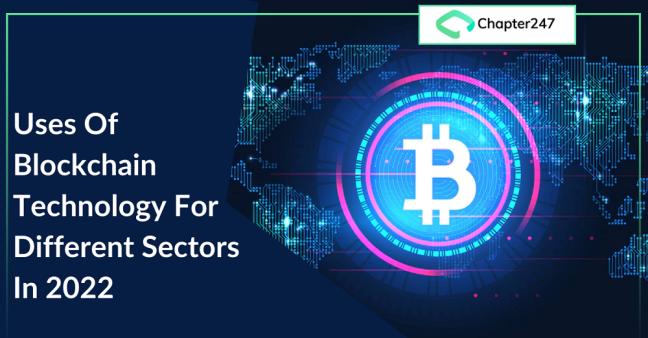The adoption of blockchain technology, along with IT support, will continue to have significant impacts on business operations. However, Blockchain Development is much more than a system for the secure transfer of cryptocurrencies.
Apart from finance, it can be used in applications such as healthcare, insurance, voting, social benefits, gaming, and artists’ royalties. With technology already making an impact on business and society on many levels, the global economy is gearing up for the technology revolution.
But before investing in Blockchain Software organizations should know the challenges and prospects of Blockchain Technology. In this article, We will discuss the top critical challenges of Blockchain Development in 2022.
Exploring Blockchain Technology’s Evolutions
What does Blockchain Development mean? Simply stated, it is a distributed digital record of transactions or records, and it is immutable. It’s a once-add list of technologies. The Distributed ledger technology provides the ability to add new transactions to an existing transaction chain with a secure digital signature. When combined with the P2P storage architecture, it can create a network of geographically scattered storage nodes, even paying node operators to use their surplus disk space.
The goal of Blockchain based Solutions is to defy traditional cloud storage in cost, performance, and reliability. Providers say traditional and centralized cloud storage offerings are less secure against targeted attacks because blocks, files, and objects are spread across fewer server nodes. On the contrary, a decentralized platform like blockchain Technology is much more resistant to server failures and other disturbances and practically impregnable to external attacks.
Blockchain Technology for Digital Transformation
Digital transformation is now integral to business development around the world. Since then digital technology has been responsible for significant changes in our society continuously. As a result, digital transformation perfectly touches all aspects of government operations and operations encompassing digital life. Even Custom Software development is going through a digital transformation with transparent integrations. This digital transformation aims to develop or improve trust, security, and protection of personal information.
This Technology is connected to digitally managed business processes. The emergence of distributed and decentralized ledger technologies with small contracts and the Internet of Things (IoT) is a vital part of business development. This solution holistically manages the interactivity of commercial processes for participative data sharing and financial relations.
The business transformation aimed at deploying the blockchain software requires a thorough analysis of the activities from the following perspectives:
- Impact of blockchain implementation on business.
- Impact on Customer experience.
- Impact on Partner’s Ecosystem.
- Ensure confidentiality, safety, and integrity.
- Utilize appropriate cases.
- Platform selection and development of implementation.
- Processing of regulatory requirements.
- Transforming project planning.
Prospects and Challenges of Blockchain Technology on Digital Transformation
Here are the top three Blockchain Technology Challenges and Prospects in 2022 and along with ideas on how the organization can eliminate them.
- Lack of Adoption of Blockchain technology
This Technology is an ecosystem that has to be adopted on a large scale to function effectively. For instance, tracking capabilities in supply chains would require not only an organization to adopt a network but also its suppliers.
In the absence of widespread adoption, Blockchain Development efficiency and scalability will remain Limited. However, there are good reasons for optimism that the adoption of the technology will increase.
Organizations are gathering more and more and forming collaborative blockchain Solutions working groups to tackle common irritants and develop solutions that can benefit everyone without revealing proprietary information.
- Skill Gaps in the IT sector
It remains an emerging technology, and the skills required to develop and use it are scarce. The Blockchain Experts and market has been very competitive over a while. The cost and challenge of acquiring talent in this field only add to the concerns organizations have about the adoption and its integration into legacy systems.
One way to counter this is to use Blockchain As A Service (BaaS) which allows organizations to reap the benefits of Blockchain Development Consulting without having to invest significantly in the technical talent behind it.
- Financial Resources Barrier
Implementation of this technology is not free, and for many organizations, the pandemic and the 2020 disruption have limited budgets. However, another lesson learned from the pandemic is that organizations, and IT services specifically, can change more quickly than previously thought.
A closer look at this obstacle shows that it has to do with an underlying lack of organizational awareness and understanding of blockchain Development. We found that as knowledge of new technologies becomes more widely available, the ability to make a business case for their adoption improves as a result.
Embracing Blockchain Technology for Digital Transformation
In this post, Technology is discussed from the point of view of business processes and challenges of Blockchain Development. Technology has the potential to bring the chance.
But there are a lot of challenges before it becomes commonplace. One of the biggest challenges of this technology is the lack of awareness about the technology and how it works. The skills required for the implementation are often more than traditional IT skills.
At Chapter247 Infotech, They eliminate all the challenges of Blockchain Technology and help organizations with Customized Blockchain Technology Consulting Services and give the guidance that you require. Get in touch with them and get the best custom solutions for your business. Connect today!




